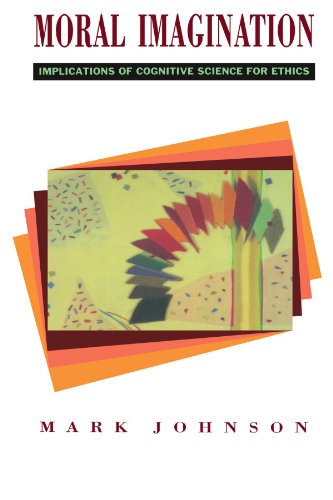Moral Imagination
Implications of Cognitive Science for Ethics
Mark Johnson
BOOK REVIEW

In the labyrinth of modern ethics, Mark Johnson's Moral Imagination: Implications of Cognitive Science for Ethics emerges as a beacon, illuminating the often murky waters of moral reasoning and human conscience. This book isn't just a theoretical treatise; it's an audacious exploration into how our very minds construct ethics, drawing upon wisdom from cognitive science to challenge long-held beliefs about morality. As you delve into its pages, you're not just reading; you're embarking on a journey that will question everything you thought you knew about right and wrong.
Did you know that our moral judgments are deeply intertwined with our imagination? Johnson unveils the startling premise that ethical behavior isn't solely a product of rational thought; rather, it is profoundly influenced by the narratives and metaphors we create in our minds. This realization is like a jolt to the system! It's a call to reevaluate how we perceive moral dilemmas in our daily lives and, in a broader sense, how we interpret human experiences throughout history.
The foundation of this work rests on the intriguing intersection of cognitive science and ethics. Johnson meticulously weaves insights from neuroscience and psychology, illustrating how our brain's structure and function affect our moral compass. It's not enough to ponder abstract principles; we must understand the cognitive processes that underpin our decisions. In a world beset by moral crises, Johnson's insights are invaluable. They provide a framework not only for scholars but for anyone grappling with ethical decisions in everyday life.
Readers often rave about the transformative potential this book holds. "Moral Imagination reshaped my understanding of empathy," one reviewer stated, reflecting a sentiment echoed by many. The visceral reaction to Johnson's writing underscores a larger truth: his arguments compel you to feel, to challenge your biases, and to engage with the world more compassionately. This isn't an academic text you read and close; it's a catalyst for change. It stirs a deep-seated yearning to apply its concepts in everyday interactions, pushing you to consider the implications of your choices.
But let's not shy away from criticism. Some readers argue that Johnson's approach leans too heavily on abstract theory, leaving practical applications in the dust. "Great ideas, but where's the roadmap?" one critic lamented. Perhaps this gap is a legitimate concern, as the challenge lies in translating cognitive insights into actionable ethical behaviors. Yet, isn't that the crux of moral philosophy itself? To provoke thought and inspire action? Johnson ignites a fire within you, urging introspection and action in ways that are deeply personal.
Historical context plays a crucial role in understanding the breadth of Johnson's work. Written in the 1990s, a time of burgeoning interest in neuroscience, Johnson's ideas predate much of the current discourse around cognitive science and ethics. He was ahead of his time, laying groundwork that contemporary ethicists are only beginning to explore. In an era where moral relativism often reigns supreme, his emphasis on imagination as a tool for ethical reasoning is revolutionary, offering a fresh lens through which to view our moral landscape.
What's remarkable is how Johnson's work resonates in today's climate of ethical ambiguity. The dilemmas we face-ranging from social justice to environmental stewardship-demand a moral imagination that encompasses the very essence of empathy. It's an intellectual invitation to expand our horizons, to consider not just the law, but the spirit of the law-the implications of our actions on others.
So, as you wander through the pages of Moral Imagination, allow yourself to be unsettled. Let Johnson's thoughts marinate in your consciousness, reshaping not only how you think about ethics but how you live them. The narrative he crafts doesn't just exist within the confines of academia; it ripples out into the world, challenging societal norms and urging you to be a force for good.
Ultimately, this isn't merely a book; it's a transformational experience that holds the potential to redefine your moral framework and challenge the status quo. Join the ranks of readers who have been inspired, bewildered, and profoundly changed. Dive deep into the ocean of moral imagination-your journey toward ethical enlightenment awaits. 🌊💡
📖 Moral Imagination: Implications of Cognitive Science for Ethics
✍ by Mark Johnson
🧾 302 pages
1994
#moral #imagination #implications #cognitive #science #ethics #mark #johnson #MarkJohnson